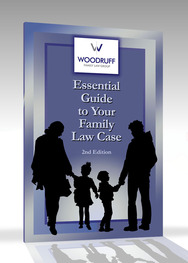Creative Family Law Solutions
for a Complex WorldCONTACT US NOW
Rules For Being A Witness
By Carolyn Woodruff, North Carolina Family Law Specialist, CPA, CVA
So, the court date is approaching. The witness stand is in your future! Not to worry!
Testifying is both easy, and hard. The easy part is telling the truth! The hard part is listening. Yes, I said listening. Witnesses frequently do not listen to the question being asked by the lawyer.
There are four rules to being a witness: (1) Listen to the question. (2) Understand the question. (3) Answer the question. (4) Shut up!
Most witness errors are in listening. The witness has on his or her mind what the witness wants to say. And, mostly likely, that has little to do with the question asked. Listening is mostly psychological, as contrasted to hearing which is physical (i.e., does your ear work properly?).
Here are some tips for listening.
First, relax and take a deep breath. Be in a mindful state as they say in yoga. Do not rush to answer. The judge will give you plenty of time to compose yourself and answer.
Second, if you did not understand what you heard, ask for the question to be repeated.
Third, listen for keywords like “who, what, where, when, how much and why.”
“So, do you know what time it is?” What is your answer? Most people look at their watch or phone and give you the time. But that wasn’t the question. The question called for a yes or no answer—not the time.
“When” calls for a date and perhaps a time. Example question: “When did you go to bed?” Answer: “10 PM approximately.” The questioner did not ask why you selected that bedtime, or where you were, or the temperature of the room.
“Where” calls for a location or place. “Where did you go at 11 AM Sunday?” Answer: “To church.” Now, this answer could include the name and address of the church, but the good witness might wait for the next question which would elicit the location if important.
“Who” calls for the name of a person. “Who did you go to church with last Sunday?” Answer: “My son Rob and my husband John.”
“How much” calls for an amount. “How much did you pay for your car approximately?” Answer: “I don’t recall. I would need to see the contract.”
“Why” calls for an explanation. The why questions require you to explain, but I usually tell witnesses that explanations of more than three to five sentences should generally be avoided. Explain, and wait and see if the questioner needs more. “Why did you go to sleep at 10 PM?” Answer: “I was tired.” Going off on a tangent on all that you did that day that made you tired is not required. The questioner can follow up with “what made you tired?” if that is important to the case.
Do not be afraid to say: “yes,” “no,” “I don’t know,” or “I do not recall.” Those are answers if they are truthful. You can ask to explain your answer. “Yes, but I would like to explain.” Then take three to five sentences for your explanation.
Following and practicing these rules on listening will make you a much more credible witness. And being credible is what this is all about.

 Woodruff Family Law Group Home
Woodruff Family Law Group Home










